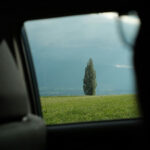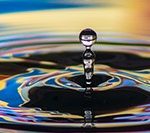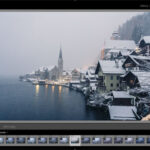Most people think of flash as a tool to create dramatic portraits, and while that’s true, it’s definitely not the only way flash should be used. Actually, using flash can give you the control to create a number of different lighting effects; it just depends on the type of look you’re going for. Control of light is the first reason why flash is awesome—and the umbrella reason—but there are four underlying aspects to that. Pye from SLR Lounge shows you how you can control light to get the shot you want:
1. Control of Light
To provide the photographer with added control, but control of what?
2. Control the Amount of Light
Add light to:
- fill and modify existing light
- enhance and strengthen existing light
- expose a subject for a dark scene
- overpower the sun or other light source
3. Control the Direction of Light
If the direction of light isn’t flattering for your subjects or you’re not getting enough light, modify it for varying stylistic and creative effects.
- Poor light direction: If you’re not getting enough light on your subjects, you can use flash with a reflector to add to the existing light direction that is naturally in the scene.
- Flat light direction: If you’re subject is in an area with unflattering light direction, instead of adding to an existing light direction, you can use flash to change the light direction.
4. Control the Quality of Light
What is the ideal quality of light? There is no “right” light. As Pye says, there’s only a right quality of light for the type of scene you’re working in and the type of subject and emotion that you want that image to convey. A few examples:
- Soft and diffused lighting for flattering portraits
- Hard and direct flash for editorial portraits and effects
- Specular light for drama and stylistic effects
- Diffused directional light to enhance existing light
5. Control the Color of Light
From fluorescent lighting to tungsten—or even the sun—every type of light source is different and produces its own color. You can use flash to modify the color temperature of light for stylistic and creative purposes.
Not only can you use flash for creative control, but also to fix the color of light in your shots.
Using flash gives you tons of control over the light, no matter what kind of scene you’re working in. Again, there is no “right” light, just the right type for the purpose and effect.
Like This Article?
Don't Miss The Next One!
Join over 100,000 photographers of all experience levels who receive our free photography tips and articles to stay current:










One of the very best tutorials I’ve seen on flash. Would have liked a little more time on how to achieve the various light scenes (shooting into reflectors on the side, etc) Great samples and great presentation. Thanks!